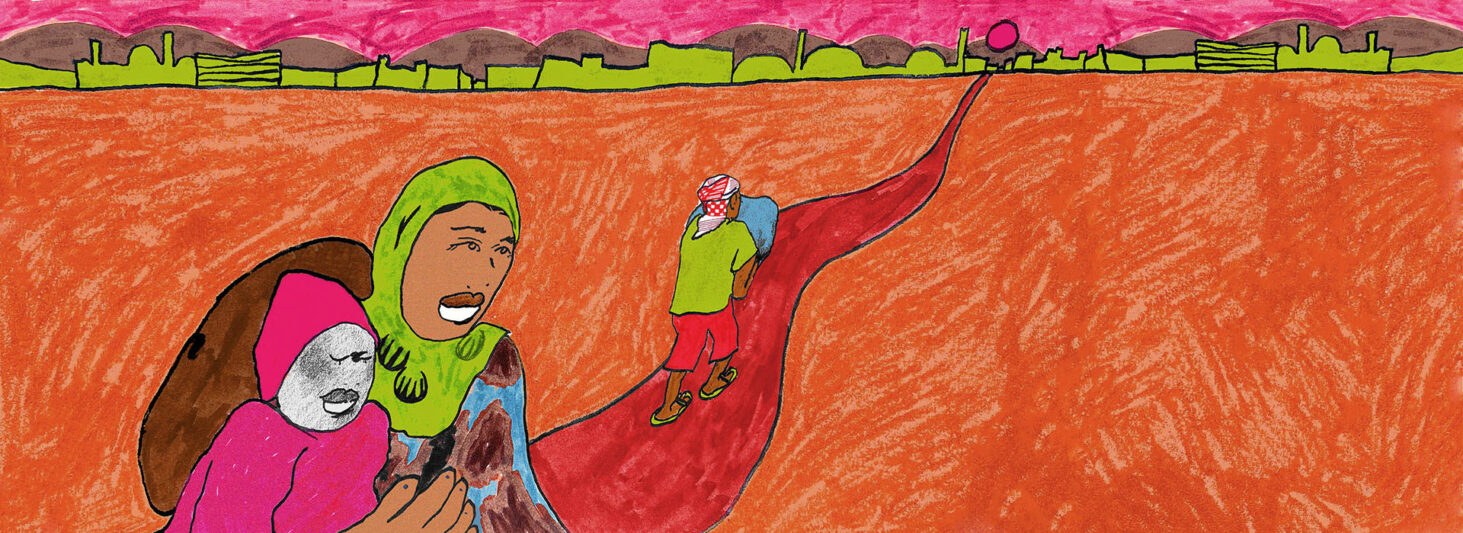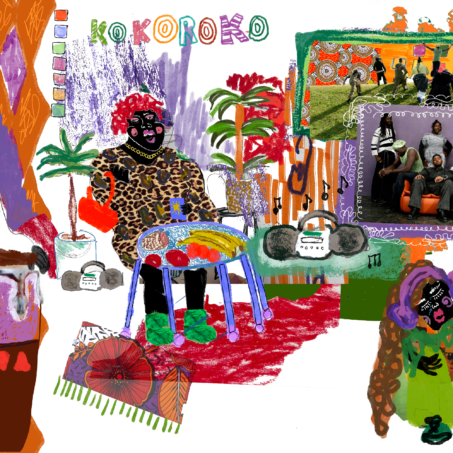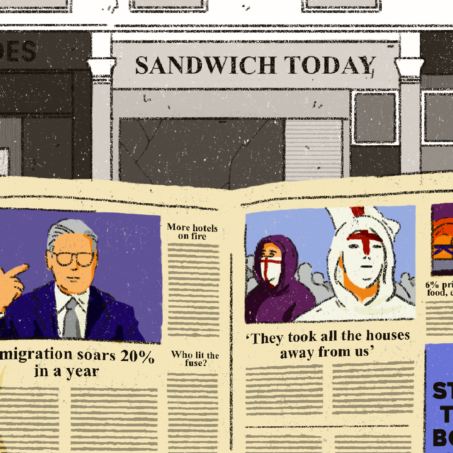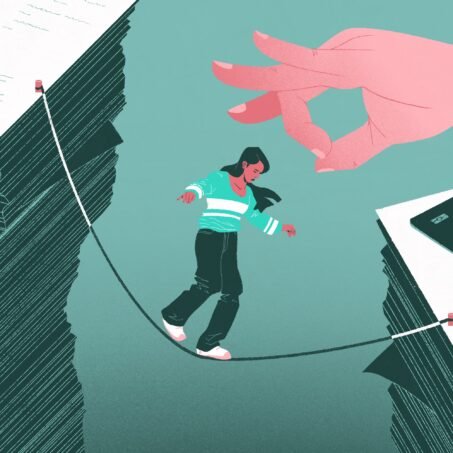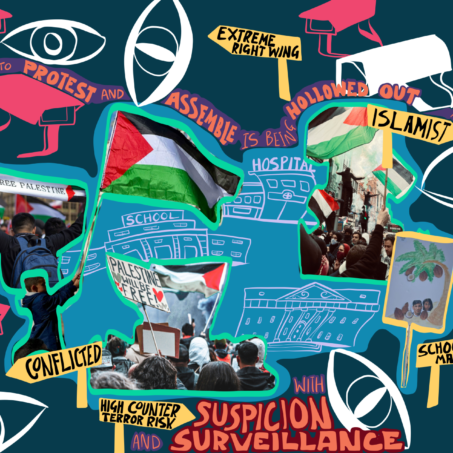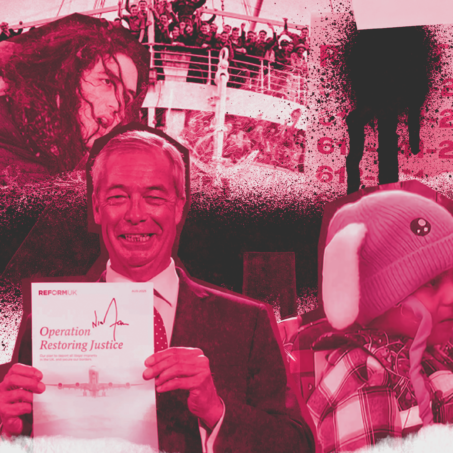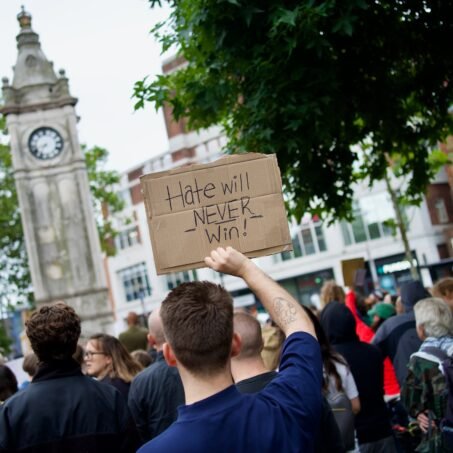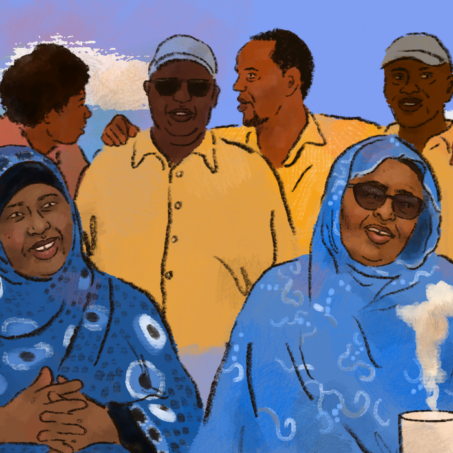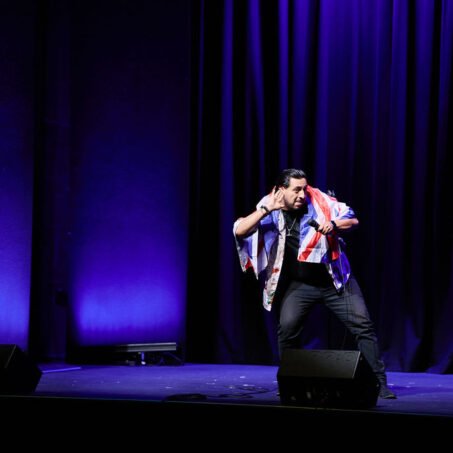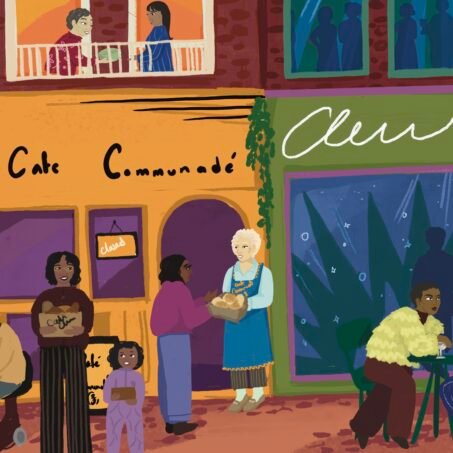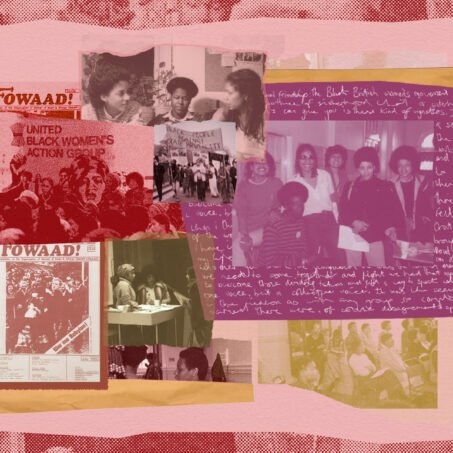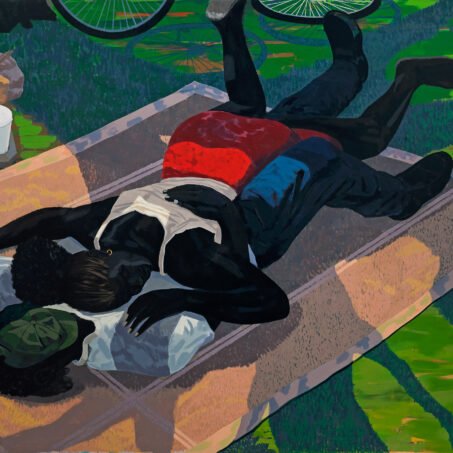I’ve always been the kind of person who likes asking a lot of questions. I think I embody a Burundian proverb: ukura utabaza ugasaza utamenye. This translates as: “If you grow up without asking, you get old without knowing.”
Our lives begin in small ways; it’s like drops of rain that become little streams and then, finally, great rivers that flow into the ocean. I arrived in the UK at the end of 2022 through many countries, eight years after I had left my own country, Burundi.
If someone had told me that I was going to end up in the United Kingdom, I’d have thought they were dreaming – but now I’ve learned that tomorrow is a promise that cannot be foreseen.
I did not have any family or friends when I first arrived in the UK, and I could not have predicted who I would be surrounded by. I couldn’t have known that not only would I meet interesting and welcoming people, but people that would, in turn, help me reflect on my own experience.
One of these was Amit Lahav, the Artistic Director and founder of the theatre company Gecko. In February, I went to the National Theatre and watched Kin, Gecko’s latest production which uses physical theatre to portray different migration stories inspired by members of the international cast. One of the stories that inspired the play was the journey of Amit’s grandmother, who in 1932 left Yemen to build a better life in Palestine. I got the opportunity to speak with Amit, and I was able to put my hunger for questioning into practice.
We are all a product of migration
Before Amit had joined the Zoom call, I told one of the shado editors that I was nervous. She smiled and said: “You’ve got this.” But there was no need for my nerves, as Amit answered each question kindly and thoughtfully.
My first question centred around his grandmother’s story of migration, and why he found it so inspiring. “I suppose, fundamentally, I was inspired by the connection to that struggle to survive,” Amit responds. “And I think through that struggle, I felt connected to the whole of humanity… to myself, and to every journey that everyone has ever had to make.”
He continues: “I also wanted people to realise that everyone is a product of migration.” He’s right, of course. I wish that all of us could come to realise that we are the children, grandchildren and great-grandchildren of those who wanted a better life, a safe life – that we all come from people who, at some point, woke up at night hearing that voice in their heads telling them that life in a different place could be better.
“That’s the simple answer,” Amit says. “It would take me a few hours to answer properly because my grandmother’s story connects the many other stories in my family. So, if her story is a seed, Kin is an enormous orchard.”
It is clear that Kin was so much more than just a show to Amit. His wise words pleased me, and I could have listened to the stories of his family for much longer – but I knew there was more I wanted to ask him, but ukura utabaza ugasaza utamenye: I pressed on.
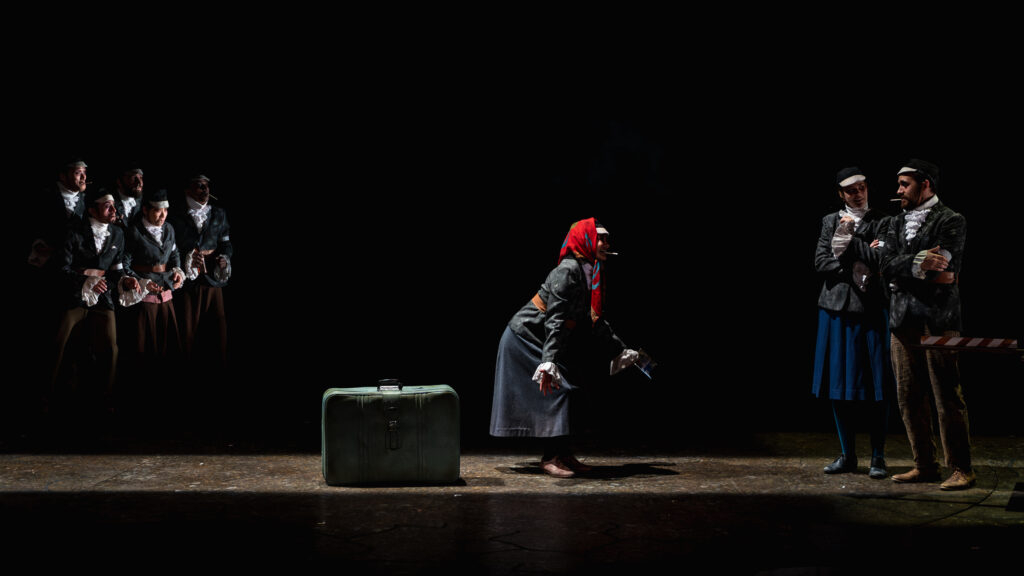
As I watched the show, I was surprised to see Amit himself on stage. It was an honour to be able to see him performing a piece from his own family history, and I asked him why he had chosen to do this. “It was actually never my intention,” he tells me. “I didn’t make the show from inside it. One of our performers got sick, and so I decided to step in myself. It’s just one of the many problems you face when you make theatre, and that you need to react to!” However, this problem became a blessing for Amit. “It was a great opportunity for me to go inside the piece and be with the performers.,” he says.
No-one is less deserving of love and sympathy
With this idea of performance in mind, I asked Amit about this play’s unique casting process. “I found a group of writers to work with to help shape the piece,” he tells me.
“They’re not external, I didn’t bring them in and give them a part. They told me who they were and that became the show.”
This answer touched my heart as it spoke to the value of our experiences. Many people believe that being a migrant automatically means that you’re unskilled and untalented. But as Amit and I believe, everyone is gifted – and these gifts can be used to create something beautiful.
I ask Amit what he would like to say to the people out there who think migrants are a problem; that our aim is to disrupt and destroy the places that we travel to. “The play says it all, really,” he explains. “The only way to get through where we are in the world right now is by practising empathy. To engage in deep, deep understanding in every direction.”
Amit believes that it’s important to understand everyone’s perspective, even the people whose actions create hostility towards migrants. “I tried to show that even those in places of power are deserving of empathy, yes – but also to emphasise that we should be listening more to those experiencing migration firsthand, rather than these politicians who are driving decisions.”
No doubt that we all can agree with Amit’s words.
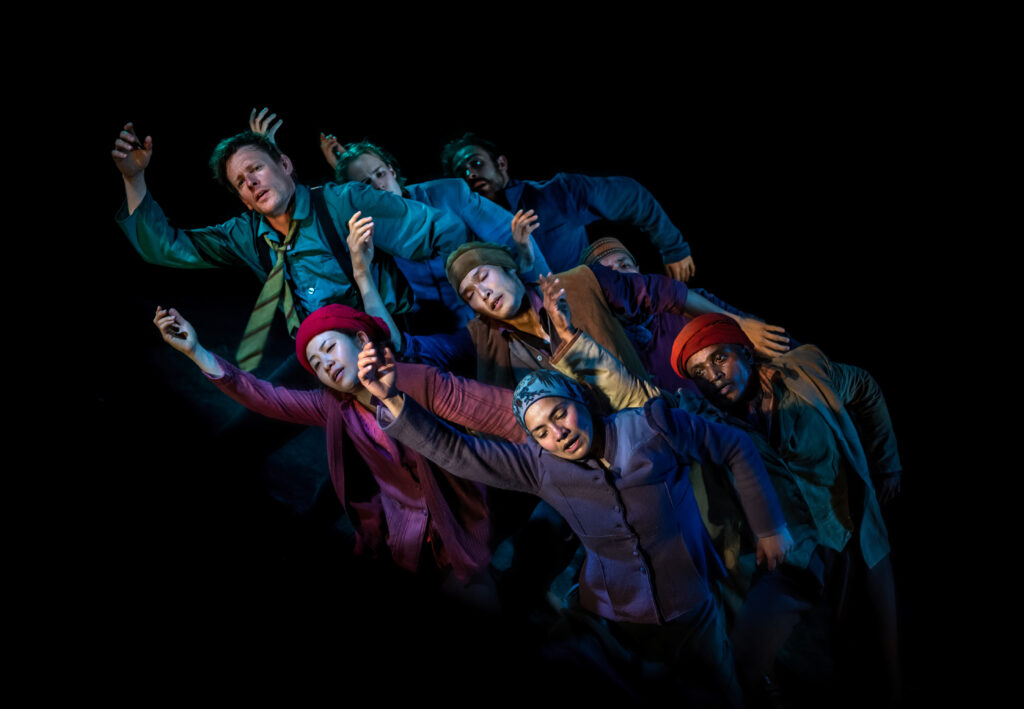
When the show started, I was confused. I think the rest of the audience was as well. In physical theatre, there’s a strong emphasis on expressionist movement, mime, and dance rather than scripted dialogue. I asked myself: How am I going to understand the show when no one is talking? And then, when there was dialogue, it was in a number of different languages. It took me a moment to actually understand the content of the show.
On reflection, maybe this is reflective of the experience of refugees when they arrive in a new place, not knowing the language, the customs, and the rules. But I couldn’t shake the feeling that physical theatre opens up the possibility of many different interpretations of the show’s story – and I asked Amit whether he was worried about this. “I’m actually never worried about that,” he says.
“People will always have a personal reaction to theatre, and it’s not something that I can control – as ultimately, it’s the interaction between the audience’s heart and the imagination in the piece.”

Join our mailing list
Sign up for shado's picks of the week! Dropping in your inbox every Friday, we share news from inside shado + out, plus job listings, event recommendations and actions ✊
Sign up for shado's picks of the week! Dropping in your inbox every Friday, we share news from inside shado + out, plus job listings, event recommendations and actions ✊
He continues: “It’s important that the work is generous and expressive and clear from the point of view. I have to make my feelings and my intentions – the movement, the sounds, the lighting and the design – very clear. But that’s not to say it is didactic and given to the audience in a way that doesn’t allow them to have their own emotional expressive imaginative journey.”
Truth and integrity
Amit explains that Kin acts as an invitation. “I’m inviting you to bring your own life story into the story of the play,” he says.
Watching the show was an emotional experience for me. Some of the scenes felt like my own personal journey. In the play, the characters are denied entry at the border, and the guards humiliate the family, pushing them around and spitting on their food. This made me recall my own experiences as if they were just yesterday.
But, as difficult as it was to watch, the show, and the tenacity of its characters, reminded me of an important lesson: where there is hope and courage, giving up does not have a place.
As Amit is supportive of differing audience interpretations, I ask him whether he created Kin with a specific target group in mind. “Just human beings”, he replies simply. “Kin wasn’t just for a London audience; soon we’ll take the show to South Korea, Georgia and China, and continue from there. The show will play all over the world, to different ages, to different human beings with different life experiences.”
In terms of a wider message, Amit forgoes this and instead says that he hopes people walk away with a sense of hope – but beyond that, it’s open to interpretation. With hope as a message of the play, I finish off our interview by asking Amit to share any words he has for the people who are feeling discouraged.
“I suppose if I have a message, I would say steer yourself towards people that are moving in a positive way,” he says. “Steer yourself towards people that are moving with truth and integrity.”
These words remind me that every day brings with it the hope for new connections. Whether that’s just having a conversation over a cup of tea, or engaging with an incredible piece of art like Kin. Even what you’re doing right now. You’re listening to me talk about all these voyages. You’re doing the work to try and find the route forwards with the most positivity. That’s a message for everyone.
What can you do?
Understand that we are born into different lives, brought up in different environments, and as a result, are exposed to different experiences. But our shared experience is that we are all human. Treat people the way you would want to be treated if you were them and in the exact same circumstances.
- Find out more about Amit Lahav, the play Kin and his work here
- Read more about Kin
- Read Life is Sad and Beautiful by Hussain Manawer
- Read The Empathy Effect by Helen Riess, MD
- Listen to 99 words Of Encouragement. Give hope to others that they are not alone
- Treat others with dignity
- Read other shado articles about migration HERE


